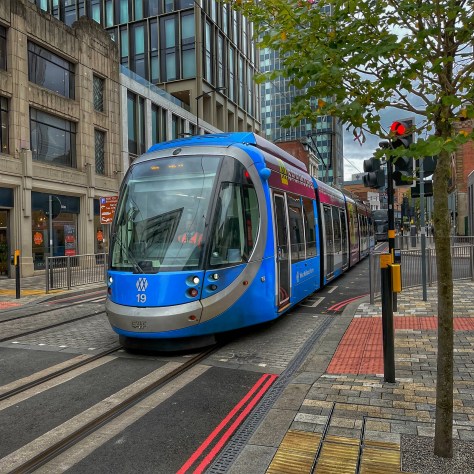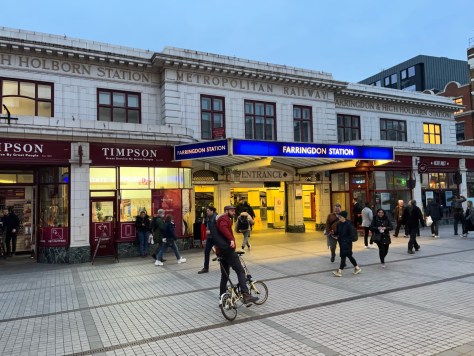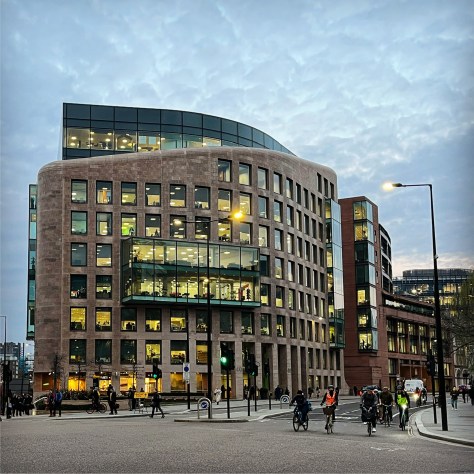After a week in the Bristol office, this week I was only there on Friday. Monday I was working from home, the train strikes disrupting rail travel for my Bristol commute. I spent a couple of days in Birmingham as well. I was off to Birmingham for a Smart Campus Roundtable being facilitated by PTS, an external consultancy company. I had attended a similar eventin London in June.
The focus of the event was about progress universities were making in the smart campus landscape, with presentations from Birmingham and Bristol. We had various discussions about university aspirations, challenges, business cases, cross-institutional teams. There was very little discussion on the actual smart campus technologies that are available. As was recognised across the room, the real challenges are vision, strategy, planning, policy, process, and culture.
I also found about the Smart Building Overlay to the RIBA (Royal Institute of British Architects) Plan of Work.
RIBA have developed a Smart Building Overlay to provide guidance on smart building technology through each RIBA Plan of Work stage; aligning decision-making with project outcomes and helping designers integrate the technology to support them.
This is an interesting document but does remind you of how much work has been done in this space by those involved in the architectural and construction industries, not just in education, but across all other sectors as well. Are educational spaces that different, something to think about.
Though much is being done in this space, the work has been focused on the relationship between the physical estate and the IT infrastructure coming together. The reality is that a university campus is awash with data from many different systems. A truly smart campus needs to bring that altogether, and an intelligent campus will enable deeper and more useful insights.
In a couple of weeks I have my Q2 review. As always, these notes come in useful for writing up that review. I also write my review in a Word document before then pasting into the HR system. I am glad that I did as I found out on Monday that there had been a glitch in the HR system which meant all my input was missing. Of course I could replace the text in my form from the Word document.
This was a habit I got into many years ago, as too often when writing into a web form, there would be a connectivity issue, or a glitch and I would lose everything I had written. So I now write in a word processor and then copy and paste. I do that for all my blog posts as well. So I am writing this blog post in Word, and then I will copy and paste into my WordPress instance later.
There is another advantage with using a word processor, is that I can write some of the blog post one day and finish it off another day. Using it for week notes means I can write up each day individually if I need to.

Saw an online presentation from David Kellerman on the digital transformation in his work at UNSW in Australia. He was an enthusiastic presenter and very passionate about his work.
I have been invited to speak at Higher Education Smart Campus Association (HESCA) event Smart Technology for a Smarter Campus’.
HESCA’s aim is to provide Higher Education establishments with a platform for debate on smart card technology issues relevant to their business objectives.
As you might imagine, the focus is very much on smart card technology, but though smart cards can provide lots of data, they can also be used to enhance the student experience in a lot of areas, if other sources of data are joined up. Very much an aspect of the intelligent campus.
I spent time researching, planning, and writing my presentation for HESCA 24 How smart technology is vital for tomorrow’s campus.
Reviewing and analysing my learning spaces space on Dovetail, looking at what I have done, what I could do, and what I need to do.
Spent time doing the purchase orders, booking, and logistics for various conferences. I am planning to attend UUK’s Survive or thrive? Grasping the financial sustainability challenge Conference. Also WonkHE’s Secret Life of Students, and the UCISA Leadership Conference in Edinburgh.
After some setbacks I did the recording and editing for my Leadership Masterclass – Operationalising your Strategic Vision video.








































